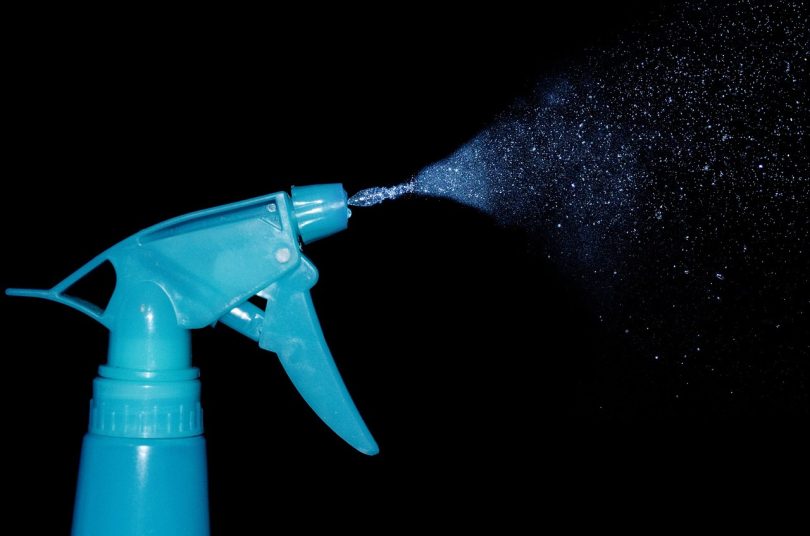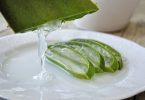Are you tired of struggling to catch your breath every time you clean your home? The solution may be simpler than you think. By using fewer spray cleaners, you can significantly ease your breathing issues and improve your overall health.
But how exactly do spray cleaners affect our breathing, and what can be done to minimize their impact? In this discussion, we will explore the risks associated with spray cleaners, common breathing issues linked to chemical fumes, harmful ingredients to watch out for, and alternative cleaning methods that can help create a healthier home.
Stay tuned to discover practical tips and natural solutions that will transform your living space into a breathable haven.
Understanding the Risks of Spray Cleaners
Understanding the risks of spray cleaners is crucial for ensuring the safety of both yourself and your environment. Many people use spray cleaners on a regular basis without realizing the potential dangers they pose.
One of the main risks is the inhalation of toxic chemicals. When you spray these cleaners, tiny droplets are released into the air, which can be easily inhaled. Breathing in these chemicals can irritate your respiratory system and cause short-term symptoms such as coughing, wheezing, and throat irritation. Long-term exposure to these chemicals may even lead to more serious health problems, including respiratory diseases and certain types of cancer.
Another risk is skin irritation. Some spray cleaners contain harsh chemicals that can cause skin irritation and allergic reactions. If you come into direct contact with these cleaners, they can cause redness, itching, and even burns. It’s important to wear protective gloves and clothing when using spray cleaners to minimize the risk of skin exposure.
Moreover, spray cleaners can also have a negative impact on the environment. Many of these cleaners contain chemicals that are harmful to aquatic life and can contaminate water sources. When you rinse off these cleaners or dispose of them improperly, the chemicals can end up in rivers, lakes, and oceans, harming marine ecosystems and wildlife.
Common Breathing Issues Linked to Chemical Fumes
When exposed to the fumes of spray cleaners, you may experience common breathing issues that can have a detrimental impact on your respiratory health. Chemical fumes emitted from these cleaners can irritate your airways, leading to symptoms such as coughing, wheezing, and shortness of breath. These fumes can also trigger asthma attacks in individuals who already have the condition.
The chemicals found in spray cleaners, such as ammonia, chlorine, and volatile organic compounds (VOCs), are known to be respiratory irritants. When inhaled, these chemicals can cause inflammation in the airways, making it difficult for you to breathe properly. Additionally, prolonged exposure to these fumes can contribute to the development of chronic respiratory conditions, such as bronchitis and chronic obstructive pulmonary disease (COPD).
It’s important to be aware of the potential risks associated with spray cleaners and take necessary precautions to protect your respiratory health. By using fewer spray cleaners and opting for alternative cleaning methods, such as natural cleaning solutions, you can reduce your exposure to these harmful chemical fumes and alleviate common breathing issues.
Identifying Harmful Ingredients in Spray Cleaners
To ensure the safety of your respiratory health, it’s important to be able to identify the harmful ingredients present in spray cleaners. Many spray cleaners contain chemicals that can be harmful if inhaled or come into contact with your skin.
One common harmful ingredient found in spray cleaners is ammonia. Ammonia is known to irritate the respiratory system and can cause coughing, wheezing, and shortness of breath.
Another harmful ingredient to watch out for is bleach. Bleach is a powerful disinfectant, but it can also release toxic fumes when mixed with other cleaning products. These fumes can irritate your lungs and cause respiratory distress.
Additionally, many spray cleaners contain volatile organic compounds (VOCs) such as formaldehyde and benzene, which can cause eye, nose, and throat irritation, as well as headaches and dizziness.
It’s important to read the labels of spray cleaners carefully and look for these harmful ingredients. Consider choosing cleaners that are labeled as ‘green’ or ‘eco-friendly,’ as they’re less likely to contain harmful chemicals.
Exploring Alternative Cleaning Methods
Consider trying out alternative cleaning methods as a safer and more environmentally-friendly option. Instead of relying solely on spray cleaners, there are several alternatives you can explore to effectively clean your home without compromising your respiratory health.
One option is to make your own cleaning solutions using natural ingredients such as vinegar, baking soda, and lemon juice. These ingredients have natural disinfectant properties and can be used to clean various surfaces, from countertops to bathroom fixtures.
Additionally, microfiber cloths and mops are another alternative to consider. These cloths are designed to attract and trap dust and dirt particles, reducing the need for chemical cleaners. They can be used dry for dusting or dampened for more thorough cleaning.
Furthermore, steam cleaners are becoming increasingly popular as an alternative to traditional cleaning methods. Steam effectively kills bacteria and viruses without the need for chemical disinfectants. By harnessing the power of hot water vapor, steam cleaners can remove dirt and grime from a wide range of surfaces, including floors, carpets, and upholstery.
Exploring these alternative cleaning methods can’t only improve the air quality in your home but also contribute to a cleaner and healthier environment.
Natural Cleaning Solutions for a Healthier Home
Make your home healthier by using natural cleaning solutions instead of relying on chemical cleaners. Not only will this help reduce the risk of breathing issues, but it will also create a safer environment for you and your family. Natural cleaning solutions are made from ingredients that are non-toxic and environmentally friendly, making them a better choice for your overall well-being.
One popular natural cleaning solution is vinegar. It’s known for its powerful disinfecting properties and can be used to clean various surfaces in your home. Simply mix equal parts vinegar and water in a spray bottle and use it to clean countertops, windows, and even floors.
Another natural option is baking soda, which is great for removing stains and odors. Sprinkle some baking soda on carpets or upholstery, let it sit for a few minutes, and then vacuum it up for fresh and clean results.
Essential oils are also excellent natural cleaning agents. Tea tree oil, for example, has antimicrobial properties and can be added to your homemade cleaning solutions to kill bacteria and viruses. Lemon essential oil, on the other hand, is a natural degreaser and can be used to clean greasy surfaces or as a natural air freshener.
Tips for Reducing Spray Cleaner Usage
You can minimize your reliance on spray cleaners by implementing a few simple tips.
First, try using microfiber cloths or reusable cleaning wipes instead of disposable paper towels. These cloths are highly effective at picking up dirt and grime without the need for additional cleaning products. Simply dampen the cloth with water and wipe down surfaces for a chemical-free clean.
Another tip is to make your own cleaning solutions using common household ingredients. For example, a mixture of vinegar and water can be used to clean windows and mirrors, while baking soda and water can be used to scrub surfaces like countertops and sinks. These homemade solutions aren’t only more eco-friendly but also cheaper than store-bought cleaners.
Additionally, try to adopt a regular cleaning routine to prevent the build-up of dirt and grime. By regularly wiping down surfaces and cleaning up spills as they occur, you can reduce the need for heavy-duty cleaning later on. This can help minimize your reliance on spray cleaners and keep your home cleaner overall.
Lastly, consider investing in cleaning tools that require less product. For example, a steam cleaner can effectively clean a variety of surfaces using only water. By using these alternative cleaning methods and being mindful of your spray cleaner usage, you can create a healthier living environment for yourself and your family.
Creating a Breathable Living Space With Non-Toxic Products
To promote a healthier living environment, prioritize the use of non-toxic products in your home. Creating a breathable living space is essential for your overall well-being. By choosing non-toxic products, you can minimize the presence of harmful chemicals in your home and reduce the risk of respiratory issues.
Start by replacing your conventional cleaning products with non-toxic alternatives. Look for products that are labeled as ‘green,’ ‘natural,’ or ‘eco-friendly.’ These products are often made from plant-based ingredients and don’t contain harsh chemicals like ammonia or bleach. Additionally, consider using homemade cleaning solutions using ingredients such as vinegar, baking soda, and lemon juice. These natural alternatives aren’t only safe for you, but they’re also better for the environment.
In addition to cleaning products, be mindful of the materials you bring into your home. Opt for furniture, carpets, and flooring made from natural materials like organic cotton, wool, and bamboo. These materials are less likely to emit harmful volatile organic compounds (VOCs) into the air.
You can also improve indoor air quality by using air purifiers and regularly opening windows to allow fresh air to circulate.
Improving Indoor Air Quality by Minimizing Chemical Exposure
Minimizing chemical exposure is crucial for improving indoor air quality and promoting a healthier living environment. By reducing the use of chemical-based products in your home, you can significantly improve the air you breathe and reduce the risk of respiratory issues.
One of the most effective ways to minimize chemical exposure is by opting for natural cleaning solutions. Many conventional cleaning products contain harmful chemicals, such as volatile organic compounds (VOCs) and phthalates, which can release toxins into the air and negatively impact your health. Instead, choose eco-friendly alternatives that are free from harsh chemicals. Look for products labeled as ‘green,’ ‘eco-friendly,’ or ‘non-toxic.’
Additionally, you can reduce chemical exposure by avoiding the use of air fresheners and synthetic fragrances. These products often contain harmful chemicals that can irritate the respiratory system and trigger allergies. Instead, opt for natural alternatives, such as essential oils or fresh flowers, to keep your indoor air fresh and pleasant.
Regularly ventilating your home is another effective way to improve indoor air quality. Opening windows and doors allows fresh air to circulate and helps remove indoor pollutants. It’s especially important to ventilate when using chemical-based products or engaging in activities that may release harmful substances into the air, such as painting or using certain household appliances.
Long-Term Benefits of Using Fewer Spray Cleaners
Reducing your use of spray cleaners not only helps improve indoor air quality but also provides long-term benefits for your health and the environment. By using fewer spray cleaners, you can enjoy several advantages that will positively impact your overall well-being in the long run.
Firstly, reducing your exposure to harmful chemicals found in spray cleaners can significantly improve your respiratory health. Many spray cleaners contain volatile organic compounds (VOCs) and other irritants that can trigger breathing issues, allergies, and asthma attacks. By minimizing your use of these products, you can reduce the risk of developing or exacerbating these respiratory conditions, leading to better lung function and easier breathing.
In addition to the health benefits, using fewer spray cleaners also contributes to a cleaner and greener environment. These products often contain harmful ingredients that can contaminate water systems and harm aquatic life. By using alternative cleaning methods like microfiber cloths or natural cleaning solutions, you can reduce your ecological footprint and help protect our planet.
Furthermore, using fewer spray cleaners can save you money in the long term. These products can be expensive, and by cutting back on their usage, you can reduce your household expenses. Additionally, natural cleaning solutions are often cheaper and more cost-effective than store-bought spray cleaners.







